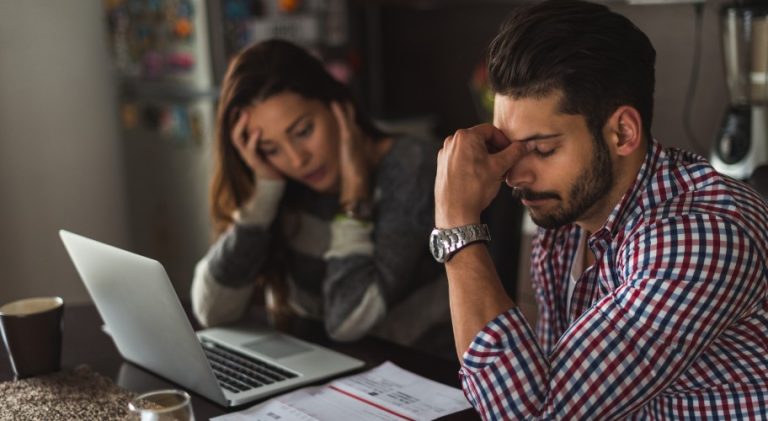Getting repeated phone calls from a number like 01389493417 can cause stress, especially if you don’t immediately recognize the reason for the calls. In the UK, this number is commonly linked to Opos Debt Collectors, a debt collection agency known for contacting individuals about unpaid debts.
Whether the debt is legitimate or not, it’s important to understand your rights as a debtor and how to manage the situation effectively. In this blog, we’ll guide you through the steps you can take if 01389493417 contacts you and how to ensure that any claims made are valid.
What is 01389493417?

The phone number 01389493417 is frequently linked to Opos Debt Collectors, a UK-based debt collection agency.
They operate on behalf of creditors to recover unpaid debts from individuals. Opos contacts debtors through phone calls, letters, and sometimes even personal visits when payments have been missed or financial obligations haven’t been fulfilled.
Many people have reported receiving calls from this number concerning a variety of debts, such as credit card balances, personal loans, or even utility bills.
It’s important to confirm if the debt belongs to you before responding, as some individuals have also reported erroneous or scam-related calls coming from this number.
Why Are They Calling?
If you’re receiving calls from 01389493417, it likely means that Opos Debt Collectors is trying to recover a debt they believe you owe. Debt collectors may contact you when:
- Payments have been missed on loans, credit cards, or other financial commitments.
- Unpaid utility bills or other services have accumulated over time.
- They have been hired by a creditor to recover overdue balances.
Before engaging with the collector, it’s essential to verify the legitimacy of the debt and ensure that it is yours. Sometimes, collection agencies may also mistakenly contact the wrong individual due to outdated or incorrect information in their systems.
How to Verify a Debt Collector’s Legitimacy?

Before you take any action, it’s critical to confirm that the debt is real and that the collection agency is acting within the law. Here’s a step-by-step guide to help you verify the legitimacy of the debt and the collector:
- Request Debt Validation: By law, debt collectors must provide written validation of the debt within five days of first contacting you. This letter should outline who you owe money to, how much, and details of the original debt.
- Contact the Original Creditor: If you’re unsure about the debt, contact the original creditor directly (such as a credit card company or bank) to ensure that they’ve passed your account to Opos. Always verify that the original creditor has authorized the debt collection agency to act on their behalf.
- Check Your Credit Report: Reviewing your credit report through agencies like Experian or Equifax will help you see any outstanding debts listed under your name. If the debt is not on your credit report, this could be an indication of a scam or mistake.
- Cross-Check with the FCA: Ensure that Opos Debt Collectors is registered with the Financial Conduct Authority (FCA). All legitimate debt collection agencies operating in the UK must be authorized by the FCA. You can search the FCA’s register to confirm the agency’s credentials.
- Be Cautious of Scams: Scammers sometimes pose as debt collectors. They may ask for immediate payment without providing proper validation or use threats to pressure you. Legitimate debt collectors should never ask for payment without verifying the debt first, nor should they threaten legal action without following legal procedures.
What to Do If You Receive Harassment Calls from 01389493417?
Harassment from debt collectors is illegal under UK debt collection laws. The Financial Conduct Authority (FCA) has set strict guidelines that protect you from being harassed or unfairly treated by collectors.
If you feel like the calls from 01389493417 are becoming overwhelming or aggressive, here’s how to handle it:
- Know Your Rights: Debt collectors are allowed to contact you, but they must do so in a reasonable manner. Repeated, frequent, or threatening calls can be considered harassment. The FCA requires that debt collectors respect your privacy and mental well-being.
- Request Written Communication: If the calls become too frequent, you can formally request that the debt collector contact you only in writing. This will help you manage the situation in a calmer, more controlled way.
- Record the Harassment: Keep a record of the calls, including dates, times, and the nature of the conversations. This evidence could be useful if you need to file a complaint with the Financial Ombudsman.
- File a Complaint: If the harassment continues, you can escalate the issue by filing a formal complaint with the Financial Ombudsman Service. The Ombudsman can investigate the collector’s practices and, if necessary, impose penalties on them.
What Are the Legal Protections and Rights in Debt Collection?

UK laws offer substantial protection to debtors. The Consumer Credit Act 1974 and the FCA’s Consumer Credit Sourcebook (CONC) outline clear rules about how debt collectors can operate. Here’s a summary of your rights when dealing with debt collectors:
- Fair Treatment: Debt collectors must treat you fairly and cannot engage in unfair practices such as deceit or intimidation.
- No Harassment: Harassment, including excessive phone calls, threats, or misleading information, is illegal.
- Debt Disputes: If you dispute the debt, the collector must cease all collection activities until the dispute is resolved.
- Time Limits: Under the Limitation Act 1980, debts that have not been acknowledged or paid in six years may become unenforceable through the courts.
If you believe that a debt collector has violated your rights, you have the right to escalate the matter to the Financial Ombudsman Service.
What Are the Common Mistakes to Avoid When Dealing with Debt Collectors?
Dealing with debt collectors can be tricky, and making mistakes could worsen your financial situation. Here are some common pitfalls to avoid:
- Not Validating the Debt: Always validate any debt before agreeing to pay. This ensures that the debt is legitimate and that the collection agency has the legal right to pursue you.
- Ignoring the Collector: Ignoring calls or letters from a debt collector can escalate the situation quickly. It’s better to communicate with the collector, even if it’s just to dispute the debt or request written communication.
- Making Immediate Payments: Don’t feel pressured to make immediate payments without first verifying the debt and understanding your financial situation.
How to Stop Debt Collection Calls from 01389493417?
If calls from 01389493417 are becoming too frequent or harassing, there are several ways you can stop them:
- Block the Number: Use your phone’s settings to block the number. Most smartphones allow you to block unwanted callers, preventing further interruptions.
- Use Call Screening Apps: Download apps such as Truecaller or Hiya, which can screen and block calls from known spam or debt collection numbers.
- Request Communication in Writing: Legally, you can request that debt collectors only communicate with you in writing. This can reduce the stress of phone calls and give you more control over the situation.
How to File a Complaint Against a Debt Collector?

If you believe that Opos Debt Collectors has behaved unfairly or illegally, you can take action by filing a complaint:
- First Step: Complain Directly to the Collector: Write to Opos Debt Collectors outlining your complaint. They are legally required to respond and attempt to resolve the issue.
- Escalate to the Financial Ombudsman: If Opos doesn’t resolve the issue satisfactorily, escalate the matter to the Financial Ombudsman Service. The Ombudsman can investigate and issue fines or compensation if the debt collector is found to have acted unlawfully.
Debt Collection Timeline and What to Expect
| Stage | Action | Recommended Steps |
| Missed Payment | Initial calls and letters from the debt collector. | Respond promptly, verify the debt, and discuss repayment options. |
| Frequent Missed Payments | Calls become more frequent and urgent. | Contact the collector to negotiate and request debt validation. |
| Debt Collector Visit | A debt collector may visit your home after a few months of non-payment. | Verify their credentials and validate the debt before any payments. |
| Legal Action | If unresolved, the collector may take legal action. | Attend court and negotiate a manageable repayment plan. |
Conclusion
Receiving a call from 1389493417 can be intimidating, but remember that you have rights and protections under UK law. Always verify the debt, maintain communication, and know that harassment by debt collectors is illegal. If necessary, take legal action to protect yourself from unfair practices.
What Are the FAQs About 1389493417?
Why does Opos Debt Collectors keep calling me?
Opos Debt Collectors may be calling due to an outstanding debt or missed payments. If you do not recognize the debt, verify its legitimacy before engaging further.
What should I do if the debt isn’t mine?
If the debt is not yours, request written proof from the collector and dispute the debt with both the agency and the credit bureaus.
Can I block 1389493417?
Yes, you can block this number through your phone’s settings or third-party apps that filter spam calls.
What are my rights as a debtor in the UK?
UK law protects you from harassment and unfair practices. You can request all communication in writing and report excessive contact to the FCA or Financial Ombudsman.
Can a debt collector take me to court?
Yes, if the debt remains unpaid, collectors may seek legal action. However, the court usually allows you to negotiate a repayment plan.
How can I stop harassment from debt collectors?
You can formally request that collectors only contact you in writing. If they ignore your request, file a complaint with the Financial Ombudsman.
Should I pay a debt collector immediately?
No, you should first verify the debt’s legitimacy before making any payments. Ensure that the debt belongs to you and that the collector is following proper procedures.





